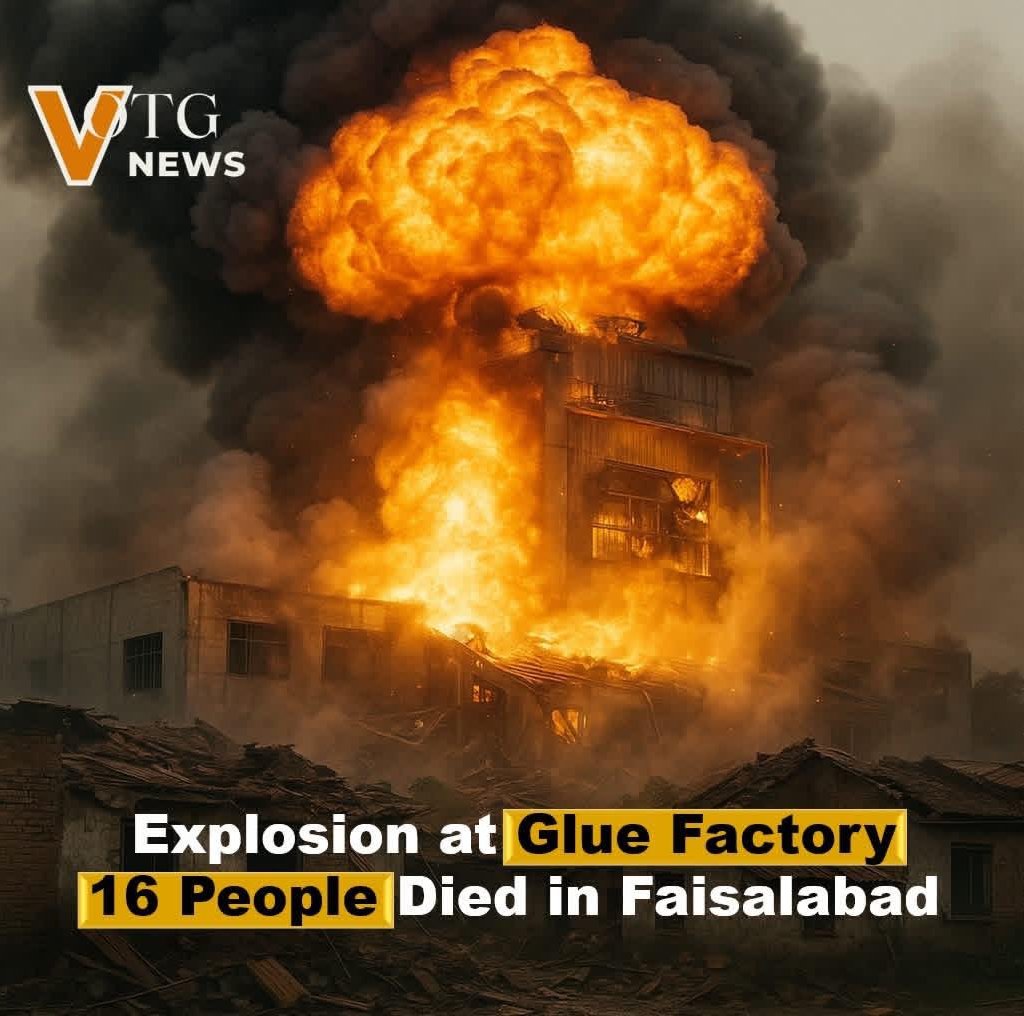Tragedy in Faisalabad: What We Know About the Glue Factory Explosion
A devastating explosion at a glue-manufacturing facility in Faisalabad, Pakistan has shaken the local community and raised serious questions about industrial safety in the region. The incident, which occurred in the early hours of the morning, resulted in significant loss of life, widespread injuries, and severe damage to nearby homes.
11/21/20252 min read


The Explosion: What Happened?
The blast struck shortly after dawn inside a glue and chemical factory situated in a densely populated neighborhood of Faisalabad. The force of the explosion was so powerful that residents described it as feeling like an earthquake.
Multiple nearby houses suffered collapsed roofs and structural damage, and a fire spread through parts of the facility immediately after the blast.
Emergency responders worked for hours to extinguish the flames, rescue survivors, and recover bodies from the debris.
Casualties and Injuries
The human toll has been deeply tragic. Reports from local authorities indicate:
At least 18 fatalities, including factory workers and nearby residents
More than 20 injured, several of whom are in critical condition
Homes surrounding the factory also sustained damage, contributing to injuries among civilians who were asleep at the time of the explosion
The scale of destruction underscores the danger of placing industrial operations in tightly packed residential zones.
What Caused the Explosion?
The exact cause is still under investigation, but early findings point to two major possibilities:
A gas leak in the factory’s chemical storage area
A boiler failure, which may have triggered the blast
Factories that produce glue often work with flammable materials, volatile chemicals, and high-temperature equipment — making strict safety protocols essential. In this case, authorities have indicated the facility may have lacked adequate safeguards.
Legal & Safety Concerns
Perhaps the most alarming detail to emerge is that the factory was reportedly built illegally inside a residential neighborhood. This decision put families, children, and elderly residents directly in harm’s way.
Authorities have already taken action:
The factory manager has been arrested
The owner is reportedly missing
A formal inquiry is underway to determine violations and accountability
This raises broader questions about industrial regulation, licensing, and enforcement in Pakistan — particularly in areas where informal or unregulated factories operate close to homes.
Impact on the Community
The explosion has left the community shocked and grieving. Many of the victims were ordinary residents who had no connection to the factory but lived close enough to suffer the consequences.
Teams from civil defense, rescue services, and local government agencies continued sifting through rubble for hours, hoping to find survivors and prevent further hazards.
What Happens Next?
Officials have launched a full investigation into the incident, focusing on:
The factory’s legal status
Possible negligence in safety practices
Maintenance records for boilers and equipment
The role of local authorities in approving or failing to stop construction
Depending on the findings, charges could be brought against those responsible, and the incident may prompt renewed calls for stricter enforcement of industrial safety regulations.
Final Thoughts
This tragedy highlights a long-running issue: when factories operate without proper oversight, the consequences can extend far beyond their walls. The glue factory explosion is not just an isolated accident — it’s a wake-up call about the urgent need for safer industrial planning, stronger enforcement, and better protection for communities living next to hazardous operations.
As investigations continue, the hope is that meaningful reforms will follow, preventing such a disaster from ever happening again.
